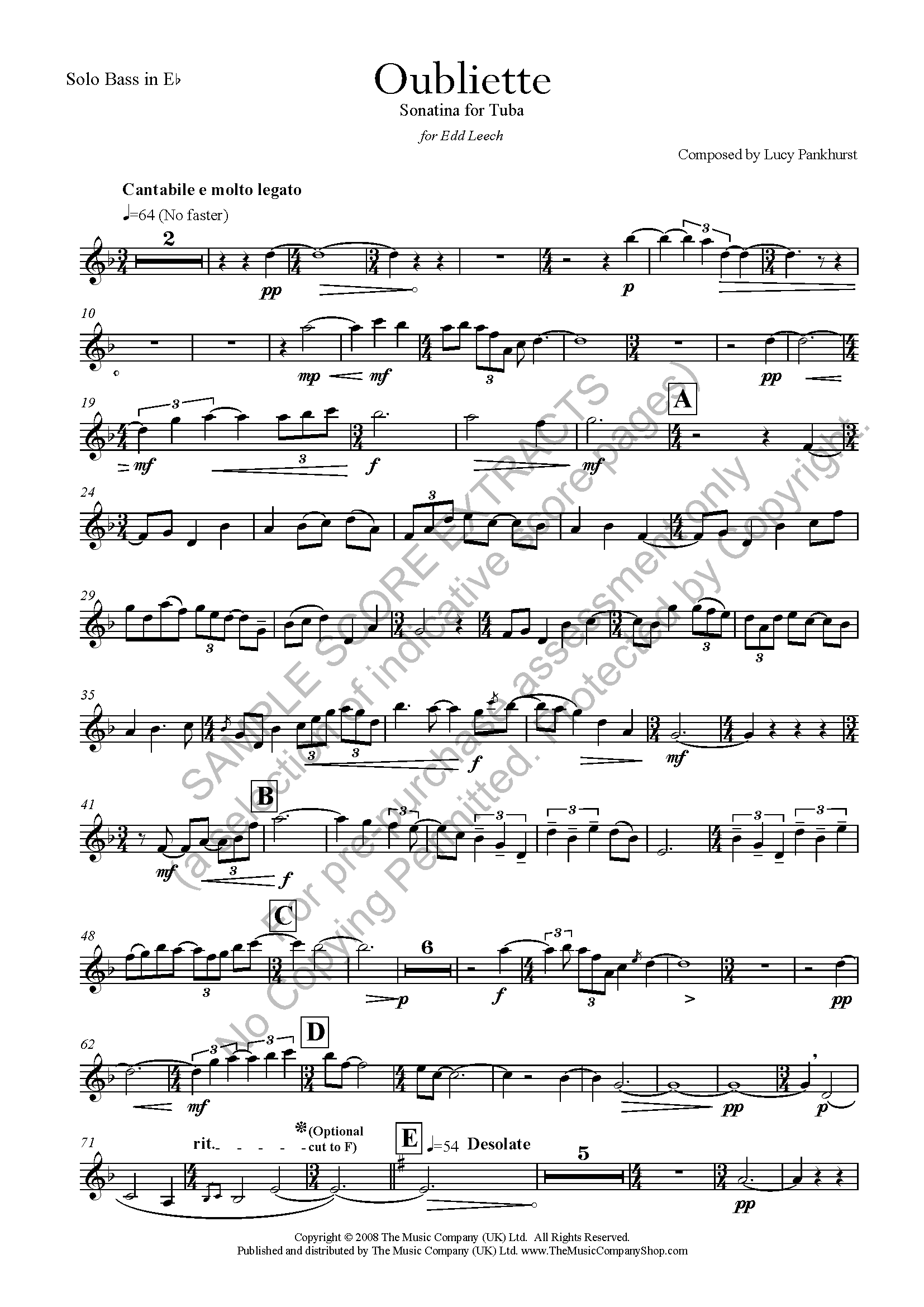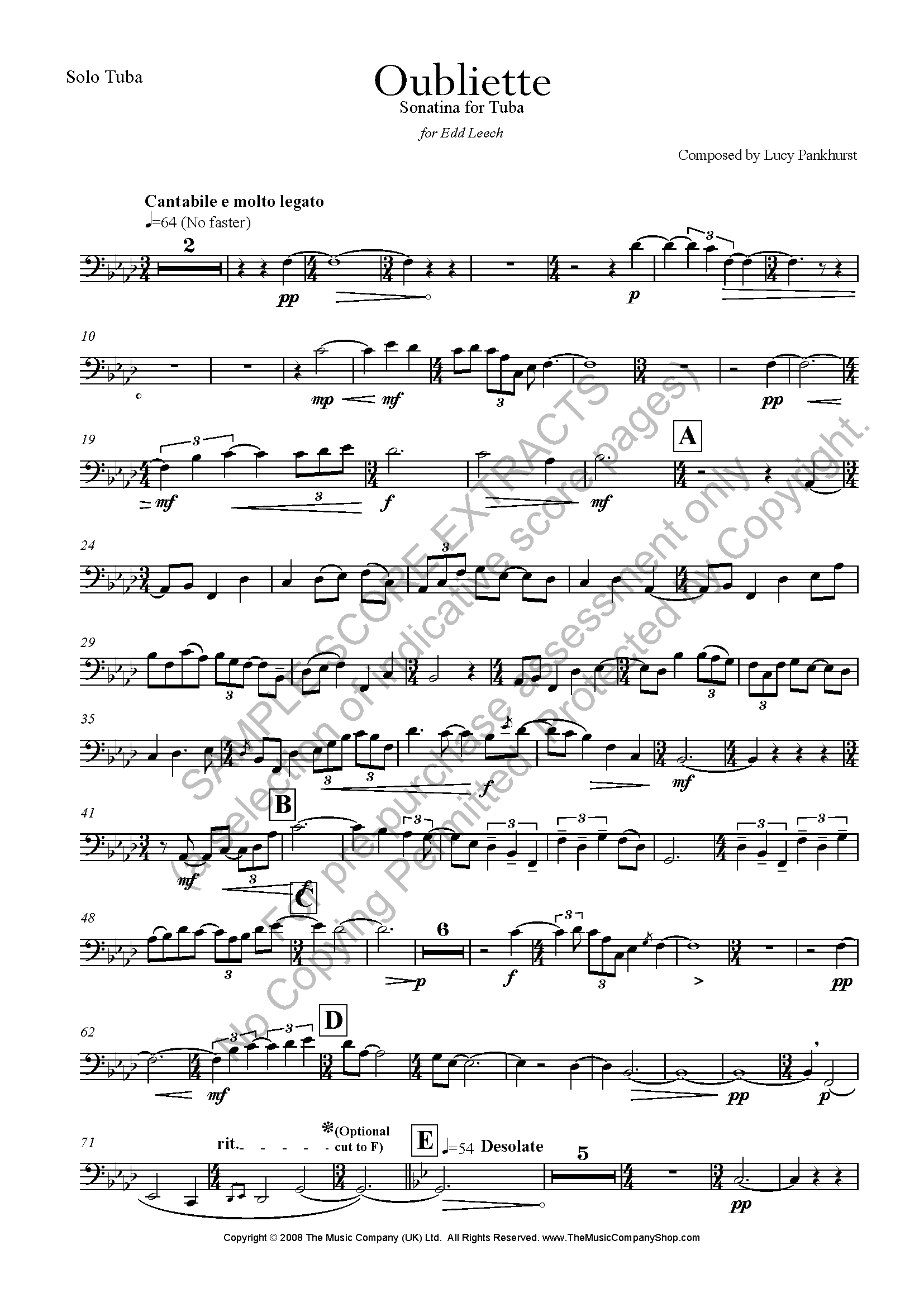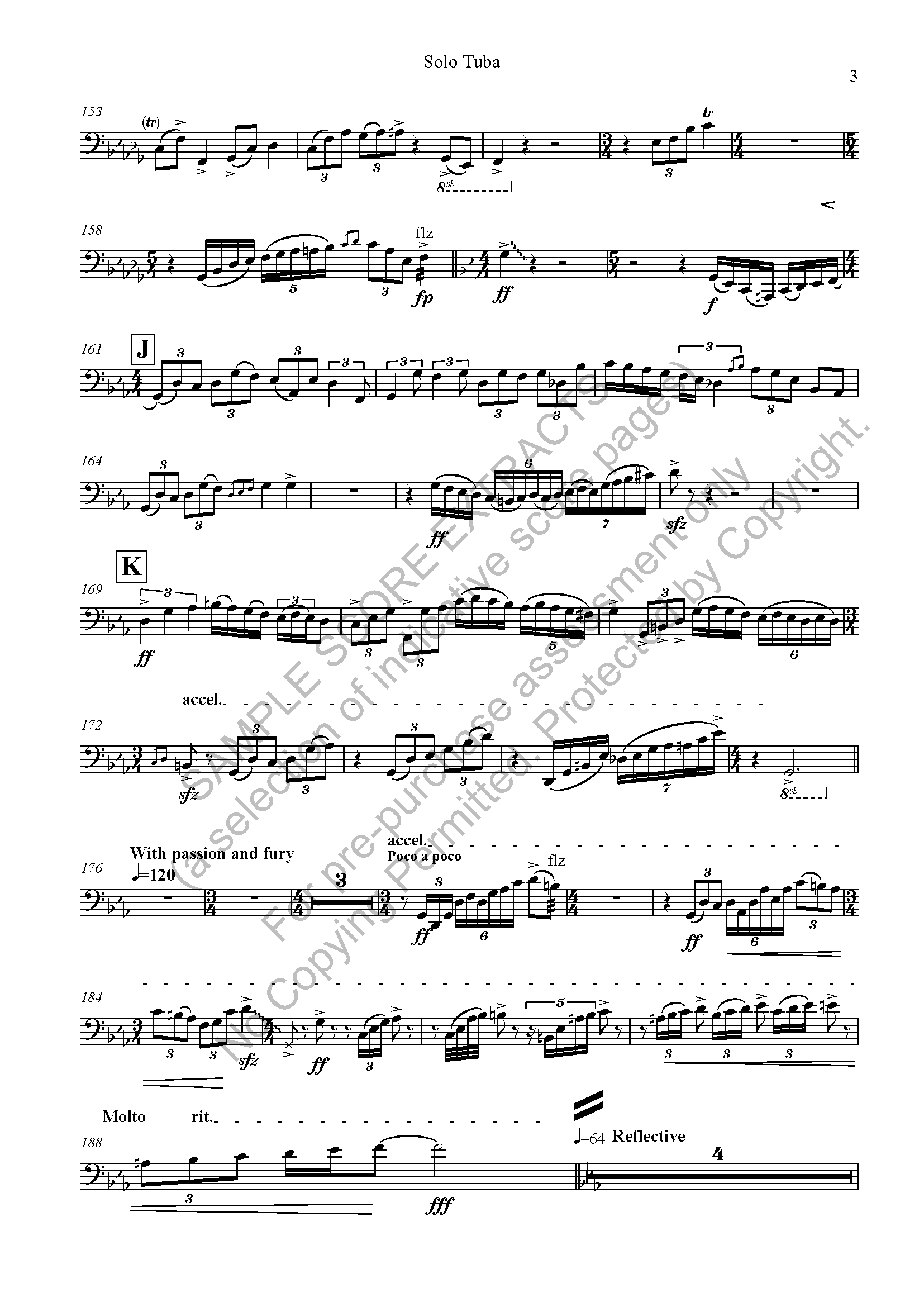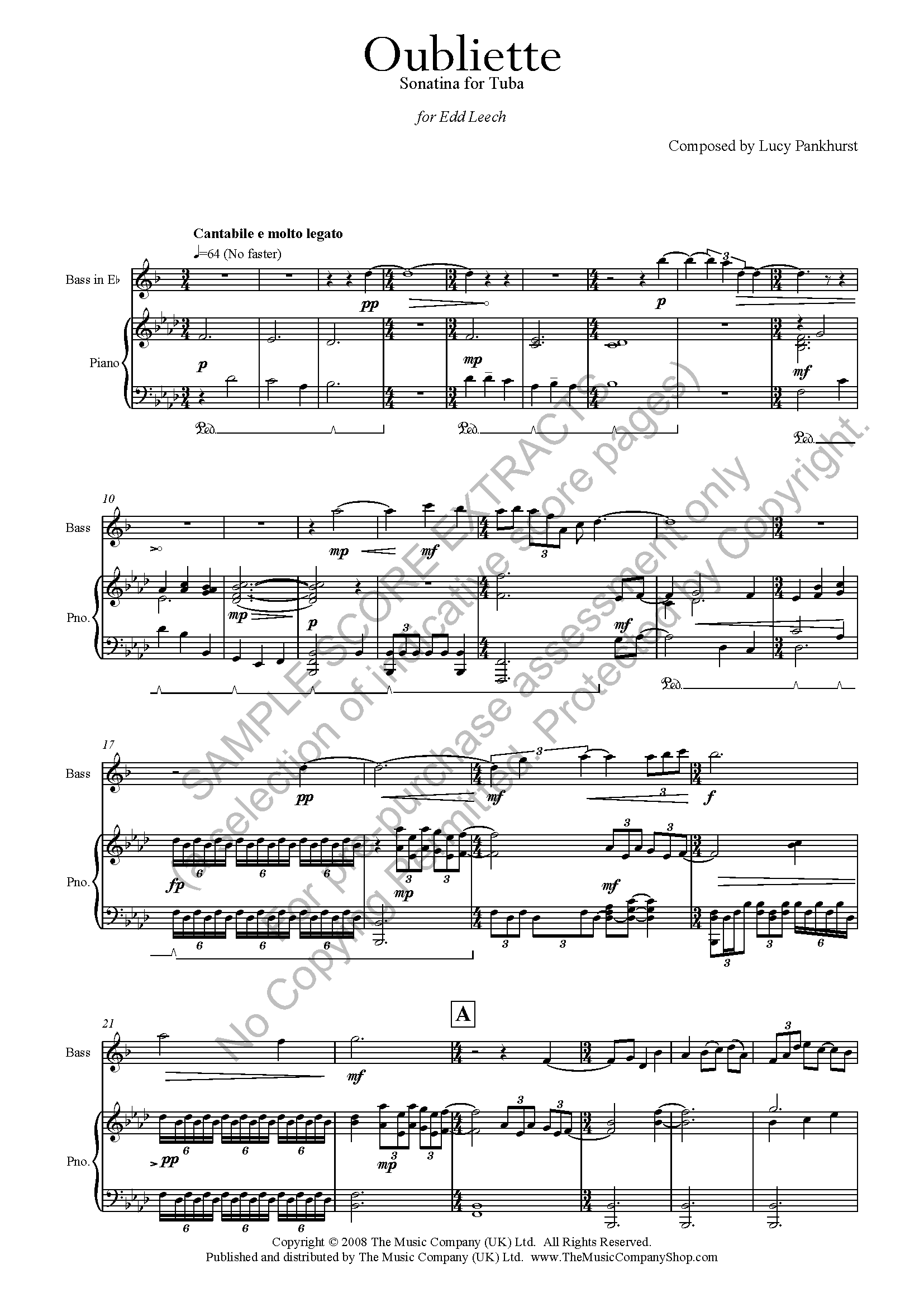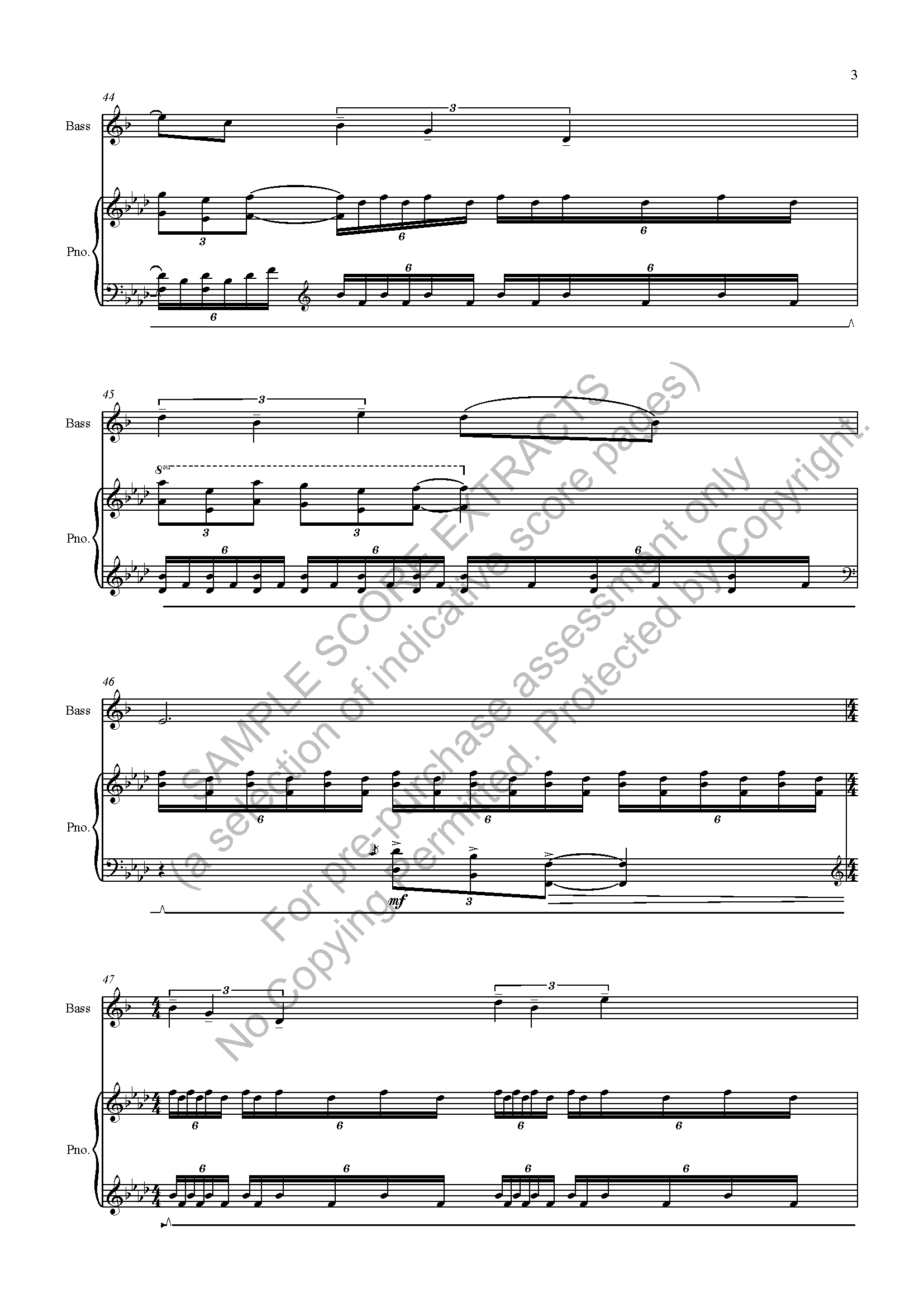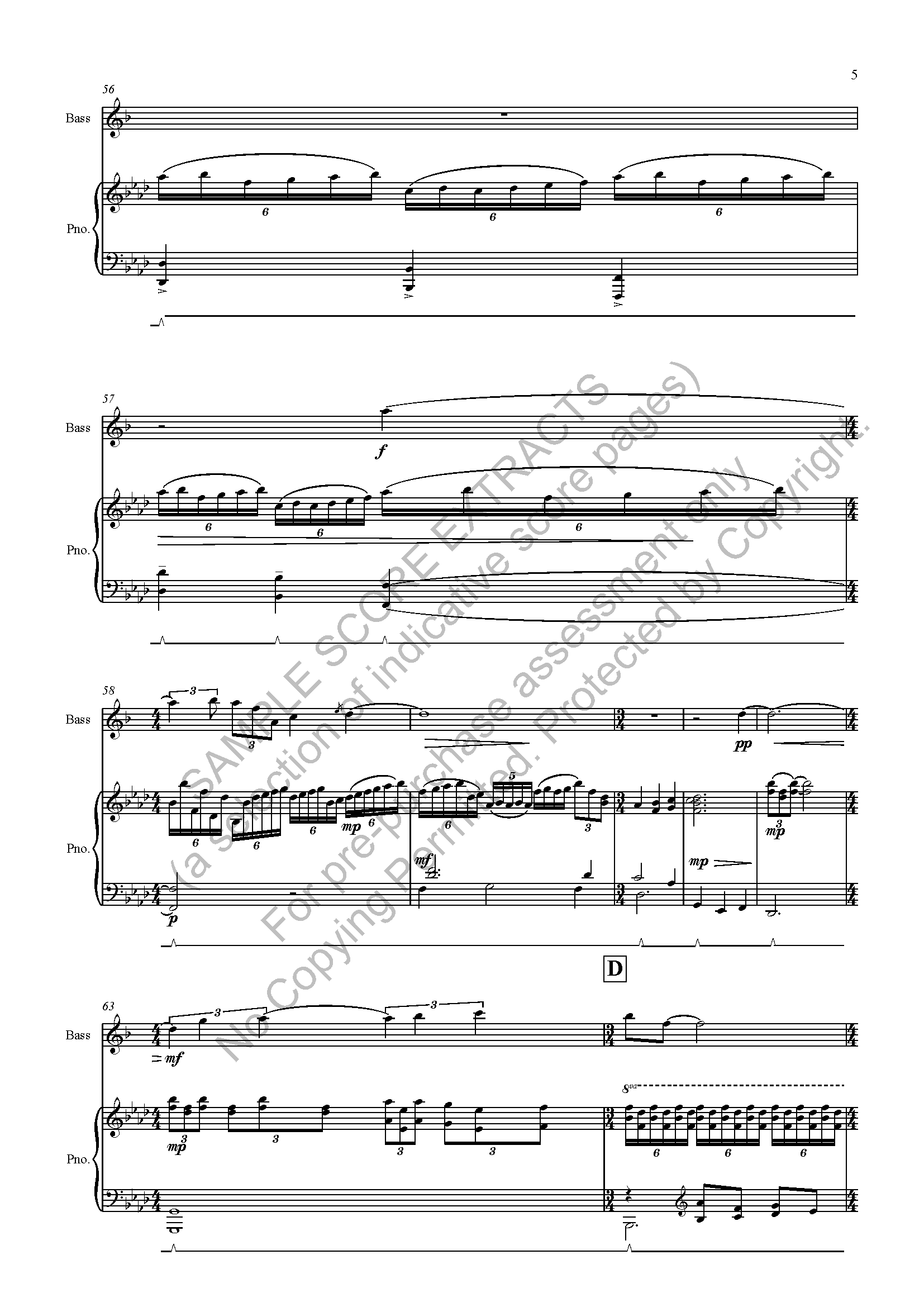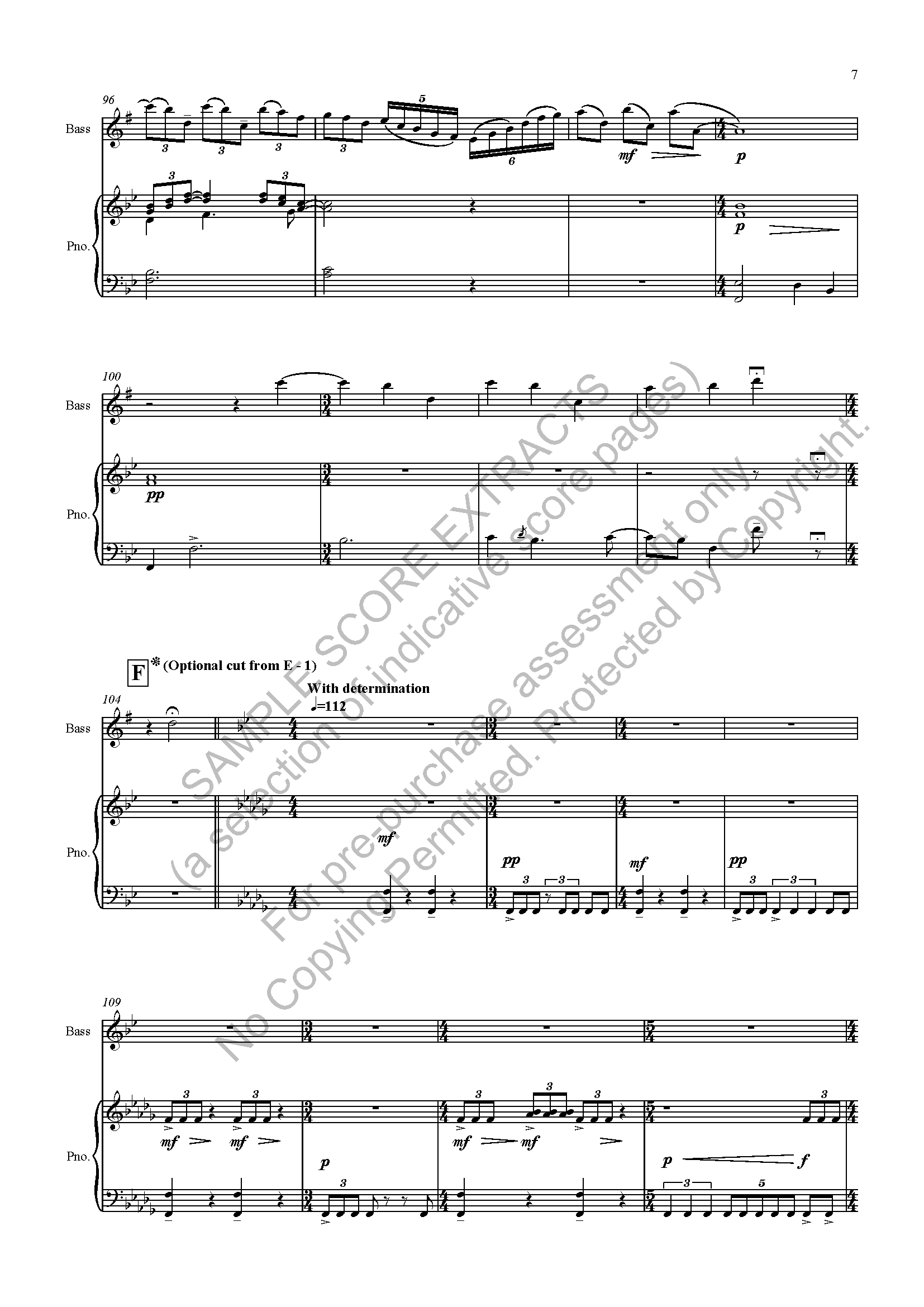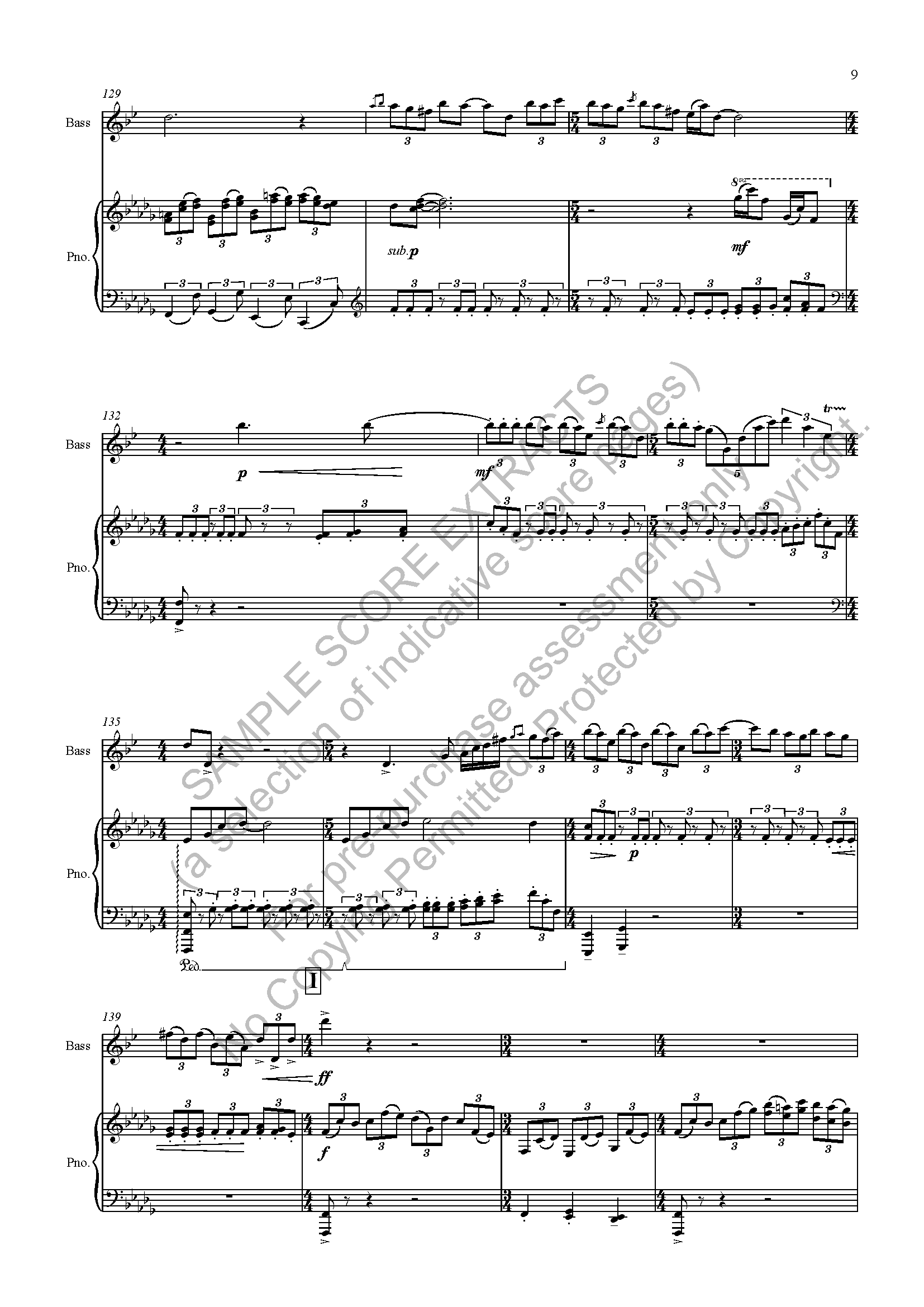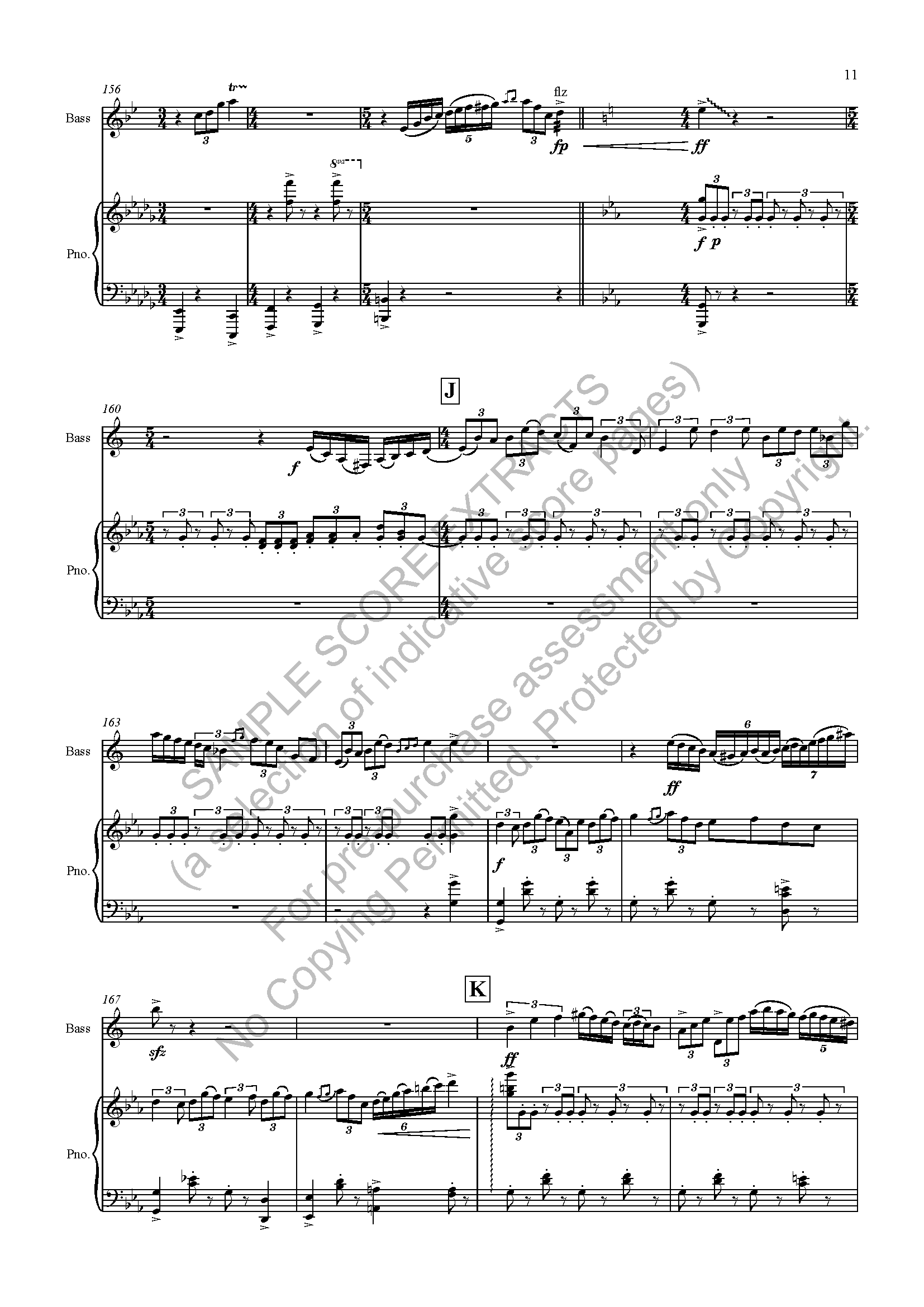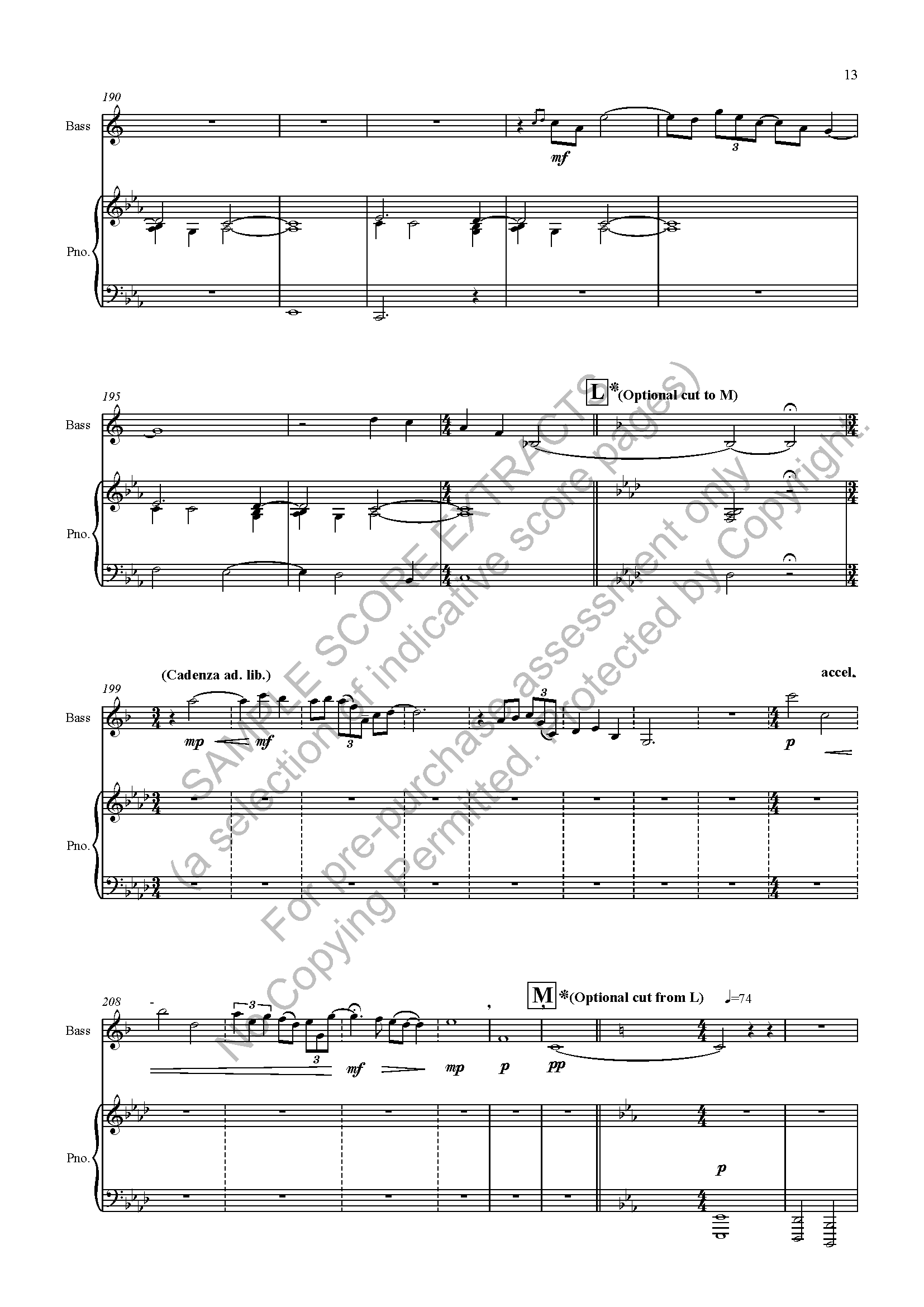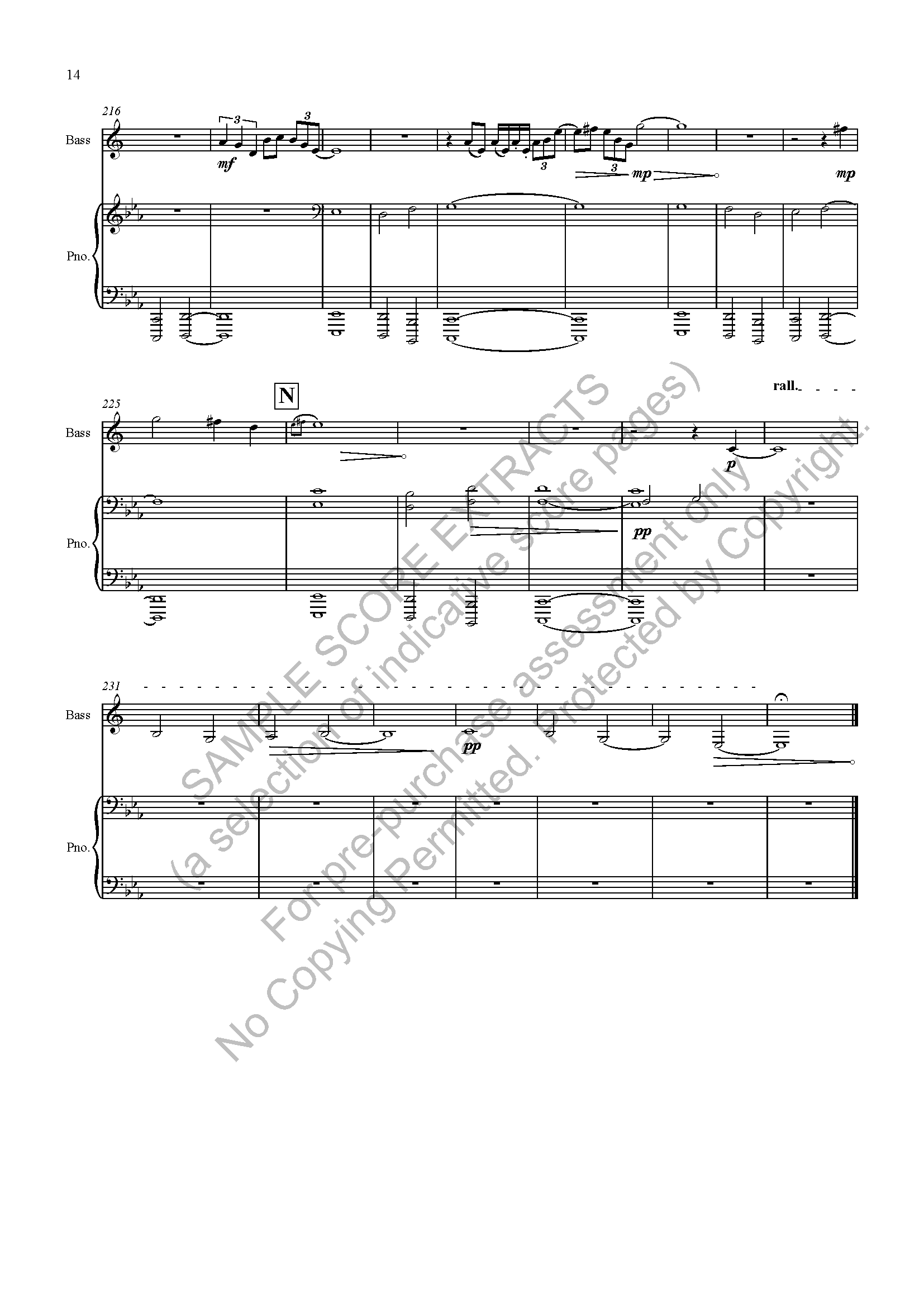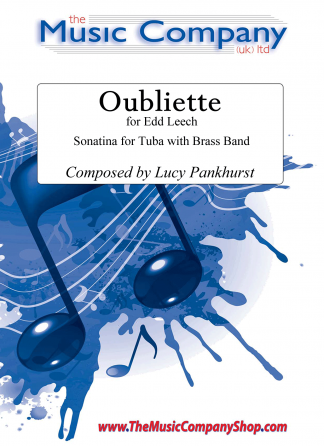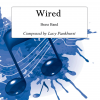Description
Lucy Pankhurst has created a highly immersive solo for Tuba/Eb Bass with brass band accompaniment, aiming and succeeding in showing the lyrical and technical diversity of the tuba, demanding virtuoso brilliance and clarity in performance.
Dedicated to tuba player Edd Leech, Oubliette raises the bar for tuba repertoire.
Set includes piano accompaniment and solo parts for Eb Bass (TC) and Tuba (BC). Solo with brass band available separately.
Programme notes from the composer, Lucy Pankhurst:
From the French word oublier, meaning ‘to forget’, an oubliette was a form of dungeon used in the 14th century. A small, windowless room where someone is locked away to be forgotten and left to go mad. I initially chose this title for the piece as the Tuba is often forgotten as a solo instrument, when its versatility in performance should be celebrated. Oubliette shows the lyrical and technical diversity of the tuba, demanding virtuosic brilliance and clarity in performance.
The work begins with desolate and sparse accompaniment with lamenting solo lines. The soloist has already been cast into the oubliette at this point and is beginning to wake from a somnolent state. Reality is blurred through the darkness of the chamber – the only entrance is a hatch in the ceiling, far out of reach. Memories are confused by countless hours of solitude – hallucinations and paranoia tainting reality.
Gradually, the soloist remembers images from the past and gains confidence and strength. Long forgotten by the captors, or presumed dead in the chamber, the entrance hatch suddenly opens to allow another prisoner inside. The soloist ceases the opportunity for escape and a short battle ensues. Sword and fist fighting, perilous leaps over the entrances to more dungeons and fierce battle cries are futile, as the soloist suddenly realises they are alone in the oubliette once more and the skirmish was nothing but another dream.
The piece concludes with unaccompanied soloist in the low register, sinking deeper into the shadows of the windowless prison; are they accepting their fate, or merely lying in wait for another chance of escape, if one will ever come . . .


